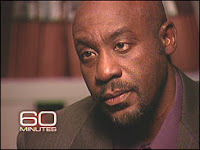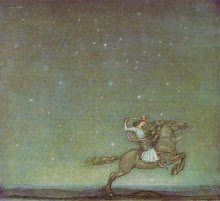To see evil and call it good mocks God. Worse, it makes goodness meaningless. A word without meaning is an abomination for when the word passes beyond understanding, the very thing the word stands for passes out of the world and cannot be recalled. I have been obsessed with lies my whole life. Not so much obvious lies, but ones that parade as truth. I recall a dream I had as a child of only four—actually a reoccurring nightmare it was—of grown-ups smiling at me while saying horrible, vicious things. I woke screaming every time I had this dream. Even as a child, I knew evil parading as good was an abomination. As Myrddin points out, it makes the meaning of good meaningless. Trust me, we've all heard and are immediately suspicious—not only because we've heard the cliché: Never trust a man who says 'trust me' but because somewhere along the way in our lives, we have trusted someone and they deceived us. How young we are when we learn this will, no doubt, influence our outlook on the world. But that isn't what is so terrible—after all, life is ambiguous and we have to learn this as a part of growing up. What is terrible is that we are left on our own at too young an age to establish our own criteria for judging what is true and what isn't. We look to our parents, our first environs, our first influences, and if we are lucky, we will find a solid template there upon which we can tell the difference between what is true and what is not. But solid templates are harder and harder to find. I am not declaring that honest parents are harder to find! but that it is harder and harder to be an honest person in a world that rewards people for dishonesty, and preys on those who are honest. Last Sunday, 60 Minutes did a show about men who had been wrongly convicted and imprisoned for crimes they had not committed. James Woodard spent 27 years in prison, coming up for parole at least 12 times, each time asserting he had not killed his girlfriend. Each time, he was denied parole for this... Pelly: All you had to do to get paroled was to tell them that you did it. Why didn't you do it? [admit guilt] Woodard: I wasn't guilty. Anyone who has ever been involved in a court case has seen how the justice system works. It is not a matter of meting out justice, but of winning at any cost. In Woodard's case, the prosecution withheld evidence that would have lost them the conviction. Was that illegal? Yes. And the consequence for withholding evidence? Nada. So, as Lenny Bruce once said,  Myrddin (Merlin) from Arthur, Stephen R. Lawhead
Myrddin (Merlin) from Arthur, Stephen R. Lawhead
These words found in Lawhead's novel about King Arthur are ones that leap out and make an otherwise merely wonderful novel sublime. Lawhead never disappoints—he is our contemporary Tolkien. 
Pelly: You chose truth over freedom?
Woodard: A man has got to stand for something.
A man has got to stand for something…
In the halls of justice, the only justice is in the halls.
When we call our legal system, the justice system, we make a mockery of the word justice as long as men like Woodard and the others who are now being freed by Project Innocence are still going to jail. The danger is that like so many words that are used in double-speak these days, the word justice has begun to lose its meaning, to become an abomination. The real danger is that as it loses its meaning, as Myrddin says, the thing that it stood for passes out of the world and it cannot be recalled. For once trust is lost utterly, can it ever be regained again?
But, God is so powerful; he made men as strong as James Woodard, who stand for truth, and who will not be bent, or compromised, or broken, no matter the temptation.
God Bless You, James Woodard, you stand among the Knights of King Arthur's Round Table…
Copyright © 2009 Stephanie Ericsson All Rights Reserved























No comments:
Post a Comment
Please! Do leave your comments, shared experiences and suggestions are very welcomed. And also a way to contact you. Thank you!